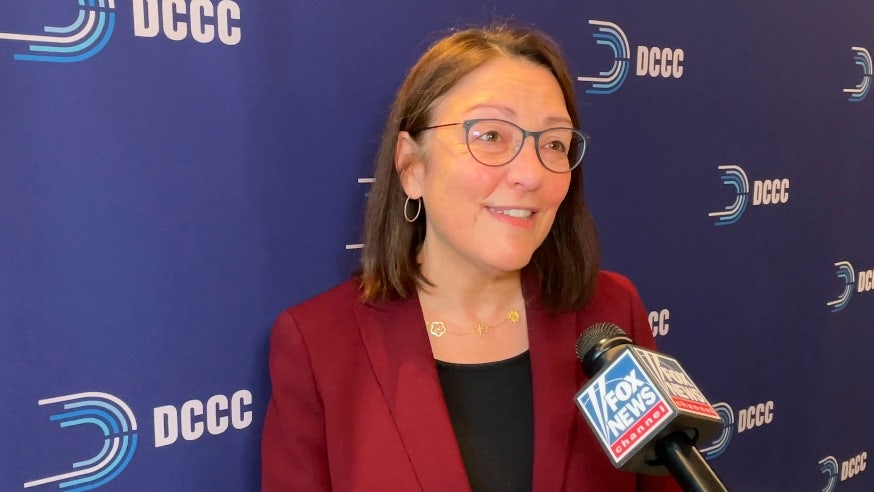Rep. Suzan DelBene, chair of the Democratic Congressional Campaign Committee (DCCC), is charting a course for Democrats to reclaim the House majority in the 2026 midterm elections. Despite losing the presidency and the Senate in 2024, Democrats made modest gains in the House, narrowing the Republican majority to a slim 220-215. This precarious Republican hold presents a golden opportunity for Democrats, who need only a net gain of three seats to wrest control of the chamber. DelBene’s strategy hinges on capitalizing on the lessons learned from the 2024 election cycle, replicating successful strategies, and holding Republicans accountable for their actions during their time in power. She believes that by focusing on strong local candidates, addressing key economic issues, and highlighting bipartisan gridlock, Democrats can effectively connect with voters and pave the way for victory in 2026.
DelBene emphasizes the importance of “building on” the positive aspects of the 2024 campaign. She points to Democratic victories in challenging districts as evidence of a winning formula. This success, she argues, provides a blueprint for 2026. Crucial to this strategy is the recruitment and support of “independent-minded” candidates who are deeply rooted in their communities and acutely attuned to local concerns. Such candidates, DelBene believes, can effectively resonate with voters and build trust within their districts. This localized approach, combined with adequate resources to communicate their message and address critical issues, forms the cornerstone of DelBene’s plan.
The focus on economic issues, particularly lowering costs and expanding economic opportunity, remains paramount. These bread-and-butter concerns resonate deeply with voters across the political spectrum, providing a powerful platform for Democrats to connect with working families. DelBene emphasizes the need for candidates to articulate clear and compelling solutions to these economic challenges, demonstrating their commitment to improving the lives of their constituents. By consistently addressing these pocketbook issues, Democrats aim to position themselves as the party most attuned to the needs of everyday Americans.
With Republicans controlling both the White House and Congress, DelBene sees an opportunity to hold the GOP accountable for their policies and their impact on working families. She anticipates that Republican governance will create vulnerabilities that Democrats can exploit in the 2026 midterms. By highlighting any perceived failures or broken promises, Democrats aim to portray Republicans as out of touch with the needs of ordinary Americans. This strategy of holding the governing party accountable is a classic political tactic, often effective in motivating voters to seek change.
Furthermore, DelBene anticipates that a potential lack of bipartisan cooperation will further erode public trust in the Republican majority. If Republicans are perceived as unwilling to compromise and address the nation’s challenges in a collaborative manner, it could create a political opening for Democrats. The desire for effective governance and bipartisan solutions is a powerful sentiment among voters. By positioning themselves as the party willing to work across the aisle, Democrats hope to attract voters disillusioned with partisan gridlock.
Historically, the party in power often faces significant losses in the subsequent midterm elections. This historical trend, coupled with the narrow Republican majority in the House, creates a favorable environment for Democrats. DelBene recognizes the importance of leveraging this historical advantage and maximizing the party’s opportunities across the country. The DCCC’s role, she emphasizes, is to ensure that voters are well-informed about the Democratic platform and the positions of their candidates. This involves reaching voters through various channels and providing accurate information about where Democrats stand on critical issues.
DelBene’s overall strategy for 2026 is a multifaceted approach that combines candidate recruitment, economic messaging, and holding the opposition accountable. By focusing on local candidates who are deeply connected to their communities, Democrats aim to build trust and resonate with voters. The emphasis on economic issues provides a tangible platform to address the concerns of working families. Finally, by highlighting any perceived failures or lack of bipartisan cooperation from the Republican majority, Democrats hope to paint a picture of a party out of touch with the needs of the American people. This comprehensive strategy, combined with the historical trends favoring the out-of-power party in midterm elections, positions Democrats for a potential comeback in 2026.

